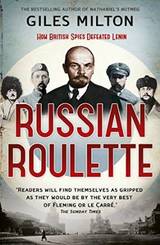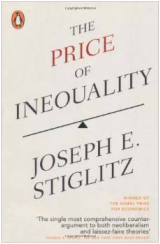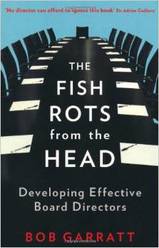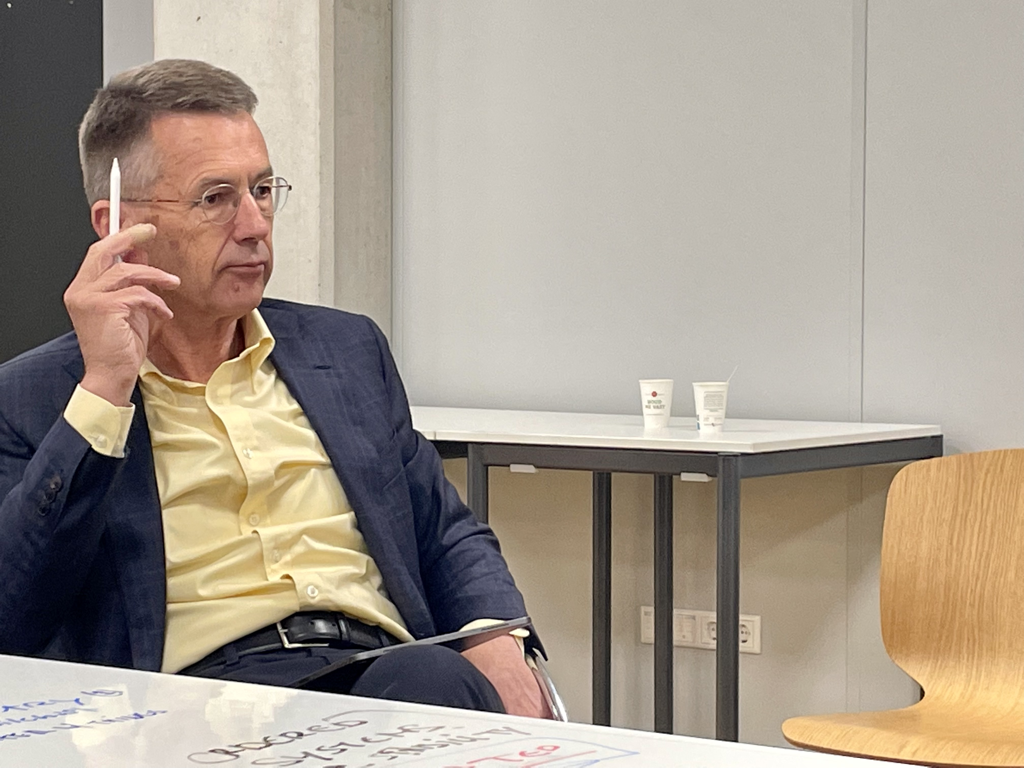|
A few weeks ago, while facilitating a board masterclass at Naivasha, Kenya, I had the good fortune to see some local wildlife at close range. Some people consider walking in close proximity to wild animals to be dangerous, for it may portend harm or injury, but others embrace the activity with open arms. Thinking, that well-spring from which ideas and insights emerge, innovations are birthed, and humanity progresses and flourishes, is similarly polarising. One of the things I have been thinking about recently is quite selfish: What direction should I take my writing in 2024? Musings is nearly twelve years old (first entry was in March 2012, which coincided with my doctoral research efforts, and sharing of conference papers and articles). While the longevity makes it a rarity, my motivation has not changed. It has been to share thoughts on corporate governance, strategy and boardcraft; our place in the world; and other topics that catch my attention. Apart from the introduction of 'boardcraft', a word I coined in 2020, this overarching goal has remained consistent since day one. From humble beginnings, when entries garnered just a few readers, the blog is now widely read. Over the years, many readers have been graciously engaged in a discussion about a topical matter, or asked for help to realise potential. And that has been wonderful, thank you. And, as you might expect, some entries have garnered high attention; others less so. Readers seem to prefer pragmatic guidance over provocations or calls to think more deeply about something. Recent examples of the former include writings on questions, chairmanship, and storytelling. Now, as we stand on the cusp of 2024, my hope is that Musings remains relevant and useful into the future. And with that, may I ask a favour? (Actually, provide an opportunity, to crowdsource Musings!) What topics and style would ensure Musings remains relevant and useful as it moves into its teenage years? Do respond in the comments block below, or send me an email. And, thank you in advance.
1 Comment
Twice this week, I have been asked about my reading and thinking habits. One enquirer wanted to know much time I spend reading and pondering insights garnered from various authors; the other whether I schedule [slow] thinking time. Although neither asked explicitly, both enquirers seemed to assume that quiet time and the notion of reading widely are important to me. And, indeed they are. But, why? The practice of reading serves, I think, two inherent objectives: to maintain currency with trends and developments, and to become a better person. The objective is not to become a technical expert capable of regurgitating data and ideas (ChatGPT can do that), but a more holistic thinker—one who discerns problems and opportunities, considers them from different perspectives, asks appropriate questions and draws relevant conclusions. More succinctly, someone who leads a reflective life. May I propose something? To philosophise is to breathe. In my experience, and that of others who I have been fortunate to interact with, the ideas that emerge from the practice of philosophising provide a solid foundation for that which follows. And yet many business leaders and board directors claim to be too busy to take time to ponder (think about) possibilities that might lie below the surface or around the corner. Quite why such a (seemingly) bedrock activity is neglected is a curiosity to me; high quality thinking is an antecedent of effective leadership and governance, n'cest ce-pas? When people I interact with, especially friends and clients, say they see a better me (someone who is on top of his game, is nice to be around and who offers relevant and considered advice), such observations tend to coincide with a period of reading literature (or other so-called 'brainy' books) and thinking deeply about the questions posed by the authors. While comments like this are gratifying, they serve a higher purpose: to remind me to make time, regardless of what else is going on around me. (And, in case you are wondering, my answers to the enquirers were, "About 12–15 hours each week" and, "Yes.")
‘That’ time of the year has arrived once more. For many, the time to put the tools down and relax for a few days is nigh. From the hustle and bustle of public life, families are gathering. Some will celebrate the significance of Christmas, others will celebrate because any opportunity for a party with friends and family is a good one. Amongst it all, some will work on, especially in healthcare, emergency services, process manufacturing, retail and hospitality; we should not forget them for they too have family and friends. I am one amongst many who carve out a little time and space towards the end of December to reflect on the year gone. Often, my mind is drawn towards relationships and experiences. This year is no exception.
Before signing off this last post for the year, a note of heartfelt thanks. Thank you to everyone who has seen fit to consider my ideas, challenge my thinking, and invite me to work alongside them this year. To have been afforded the opportunity to contribute, globally, has been delightful. The calling, to serve and support boards intent on realising organisational performance, remains strong. Consequently, the work will continue in 2023, starting in early January with responses to a long list of enquiries to assess, advise, coach and speak. Now, I have one report to complete, a client event to attend, and a few Christmas errands to run. Then, I shall set the tablet and pencil down, in favour of a book or two, my vegetable garden, a few small jobs around the house, and some quality family time.
I have the good fortune of meeting many hundreds of people every year—aspirational and established directors, board chairs, executives, journalists, shareholders, MBA students, doctoral candidates, lobbyists, regulators, policy analysts, conference organisers, and more besides. Sometimes, contact is fleeting; sometimes it is enduring, as we work together to gain insight, educate, or tackle a difficult problem. One question that keeps coming up (besides the big three, namely, what is corporate governance; what is the role of the board; and, how should governance be practiced) is, "How do I stay current and relevant?" The answer is straightforward. I read, a lot. Every morning—well, at least six days a week—I dedicate 90 minutes or more, to check newsfeeds, blog posts and emails that have arrived overnight. The primary goal is to ensure I have sufficient awareness to engage well with colleagues and clients on topical matters. Some people call this continuing professional development. I prefer a simpler description: reading to keep up. This commitment is, I find, a bare minimum because it does not afford space to read widely and think deeply about ideas, perspectives and the human condition. For that, I read books; sometimes in the evenings, but most often on flights and during holiday breaks. Why? Because I have time to think and mark (in pencil in the margin if a physical book, or electronic bookmark if an e-book) specific points to investigate further. Several people have asked what I'm reading. Here is a list of books either under way or to be read this summer break. Notice only one is directly linked to my board and governance work. That is intentional. Reading widely means, to me, reading beyond normal boundaries to discover new ideas and ways of thinking about things. This list is a selection of the books awaiting my attention. If you read, I'd love to hear any recommendations!
As summer gives way to autumn in the Northern Hemisphere—and soon winter—so various externalities that frame the work of boards and enduring performance of companies continue to press in. Topical externalities include climatic change; shifting geo-political forces; technological disruptions; diversity, equity and inclusion demands; ever-increasing levels of regulation; the emergence of ESG; and, stakeholder capitalism. The challenge for all directors and boards, whether they acknowledge it or not (or even notice or care!), is to respond well in the face of what is patently a dynamic environment—to ensure the fiduciary duty they accepted when agreeing to serve as a director is fulfilled. Steerage and guidance—the essence of corporate governance—requires every director, and the board collectively, to be alert, to both set a course and to respond well in the face of externalities. The mind’s eye needs to be looking ahead, to ensure the reason for the journey remains clear, and that decisions are made in the context of advancing towards the objective. Quite how that should be achieved is the underlying question that has driven my life’s work. Following an extended break from writing—a consequence of dealing with the passing of our patriarch—I have ‘arrived’ back at my desk to think and write again, about organisational performance, governance, strategy and the craft of board work. If you have a question, or would like to learn more about a particular aspect of board work or the impact boards can have on organisational performance, please let me know! If we are to journey far, we need to explore relevant topics and learn together.
The topic of corporate governance—that is, the functioning of the board—has generated much interest in the business community and beyond in 2015. From failures and successes, to emerging ideas and beyond, corporate governance has been front of mind for many throughout the year. Looking back, over 150 articles on corporate governance were added to Musings during the year. Here's a list of ten musings that generated the most discussion in 2015, in no particular order.
The top ten #strategy list will be posted on Dec 26. If you want to discuss any of these postings (or ask a question about a related topic or request assistance), please get in touch.
Have you ever arrived at the completion point of a major project, breathing heavily (as it were) having expended much mental and emotional (even physical) energy on the journey, only to find yourself twiddling your thumbs and wondering about the challenges that lie ahead? While some folk are anxious to move on quickly (those defined by busy-ness or a fear of idleness perhaps?), others happily use the time to read—both to relax and to recharge the mind for the journey ahead. I have been happily working my way(*) through the following books since completing the doctoral dissertation on 1 June. I commend them to you and, if you choose to open the front cover, trust you gain much enjoyment from the experience.  Why things matter to people, Andrew Sayer. Sayer shows how social theory and philosophy need to change to reflect the complexity of everyday ethical concerns and the importance that people attach to dignity.  Akenfield, Ronald Blythe. This modern classic gives voice to the inhabitants of a rural village in Suffolk, England, was an early and shining example of what an oral history could be.  Half man, half bike: The life of Eddy Merckx, William Fotheringham. A biographical narrative of cycling's greatest rider. On the bike, Merckx had an insatiable appetite for victory. Off the bike, he was sensitive and surprisingly anxious.  Russian Roulette, Giles Milton. An historical account of how British spies thwarted Lenin's attempts to destroy British India, the intrepid activities of which led to the formation of MI6.  The price of inequality, Joseph Stiglitz. Stiglitz discusses the social impacts and causes of inequality, and the economic and political impacts of what appears to be a growing problem.  The fish rots from the head, Bob Garratt. Garratt's much acclaimed book, considered a classic by many, clarifies and integrates the roles and tasks of directors, and includes a programme to help them develop the skills and approach required to do their job well.  To the edge of the world, Christian Wolmar. A fascinating history of he construction and operation of the trans-Siberian Railway, including its impact on Russian society and relations with neighbours.  One summer: 1927, Bill Bryson. A narrative of the reckless optimism and delirious energy that characterised America in the summer of 1927. (*) This is very much a work-in-progress. As of 4 July, the 'score' is four books down and four to go, and several new research and board practice ideas to boot!
What a great question. Throughout my business career, of over thirty years now, the prevailing answer has been 'yes'. However, Peter Thiel reckons the answer to both parts of the question is or at least should be 'no'.
Thiel's thesis, that competition is for losers, and this response to it will get you thinking... Boards and regulators might need to take note. I'm writing to express gratitude for your interest in my upcoming talk at the British Academy of Management conference. That my research to explain how boards can influence the achievement of company performance outcomes has stimulated such interest, even before it is completed, has amazed me. Thank you.
My paper will be on presented on Thu 11 September. A copy will be posted here afterwards. If you are planning to attend the conference and would like to meet between sessions, over lunch or in the evening, please contact me via Twitter or email. Also, I'll post summaries and reflections on this blog throughout the BAM conference, to give those that cannot attend an insight into what was discussed. To those people that have asked questions about my research: I will send a private reply. To those that have asked about meetings and speaking engagements in London and elsewhere: my schedule is now full (sorry!). However, I will be back in the UK and Europe in November. If you'd like to meet me then, please contact me to make an arrangement. For some months now, I have been wrestling with the possibility that corporate governance might not be a structure or a process, but rather a mechanism that is activated by boards in some way. I've been beavering away on this, without seeing much other research activity in the same area—until today, when this release from Penn State arrived. The article referred to corporate governance and mechanisms in the same sentence. Wow! Could this article point to some research along the same lines as my attempts to get to the bottom of what actually happens in boardrooms? Here's the first three paragraphs: UNIVERSITY PARK, Pa. -- The most effective corporate governance occurs when a mix of complementary mechanisms that include CEO incentive alignment and both internal and external monitoring mechanisms are present, according to a new study from Penn State Smeal College of Business faculty member Vilmos Misangyi and his colleague from the Singapore Management University. By the time I got this far—three paragraphs into a nine paragraph release—the wind was gone from my sails. My hopes were dashed. Misangyi and Acharya seem to suggest that effective corporate governance occurs when CEO incentive alignment and monitoring mechanisms are in place. They evaluated two variables (they call them mechanisms) in 1500 firms and described their research as holistic. Interesting. There is a growing body of research that suggests that board's involvement in the development of strategy and in the making of decisions is what matters. Misangyi and Acharya's release makes no mention of anything along these lines, nor is there any suggestion that the researchers directly observed any of the 1500 boards in their study.
I'm looking forward to reading the full research report when it is published, to see whether this is another study based on secondary data and hypothetico-deductive science, or whether Misangyi and Acharya have discovered a whole new paradigm. |
SearchMusingsThoughts on corporate governance, strategy and boardcraft; our place in the world; and other topics that catch my attention. Categories
All
Archives
May 2024
|
|
Dr. Peter Crow, CMInstD
|
© Copyright 2001-2024 | Terms of use & privacy
|







